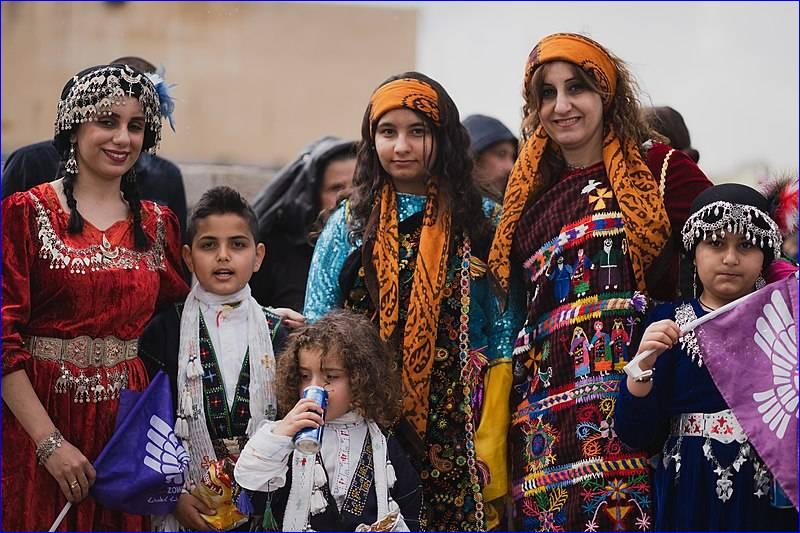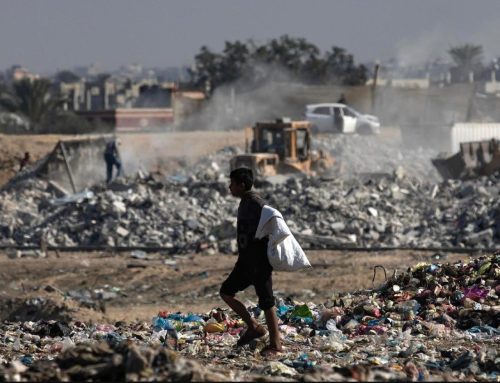When the Sykes-Picot Agreement and Treaty of Lausanne solidified the new borders of the modern-day Middle East, Assyrians would be in even more danger than before. The borders were drawn with little attention to the historical backgrounds and conflicts of ethnic and religious groups, and from this, new perpetual wars and various massacres would arise to this day.
Several of these conflicts have brought Assyrian history in the Middle East to an emergency level event. They are currently one of the most at risk ethnic minorities of the region whose continuation is currently at threat due to the rising threats.
Saddam Hussein, the former despot of Iraq, did not hide his feelings about the ethnic groups in the country compared to his Sunni-Baathist bloc, especially to the Kurds. Wanting to clamp down harshly on any terms of Kurdish self-determination, the Iraqi dictator ordered indiscriminate chemical weapon attacks against Kurdish villages, many of which were adjacent to Assyrian villages.
Caught in the crossfire between several decades of brutal Baathist repression against the Kurds, Assyrians were also killed in several crackdowns as Saddam gave little qualm of indiscriminate missile attacks and brutal Baathist torture chambers, regardless of innocence.
Turkish-PKK Conflict
Assyrians aren’t just native to Mesopotamia, but also Southern Asia Minor. Though 750,000 Assyrians were killed in the Seyfo Genocide, there remains a small community in Southeastern Turkey. At the onset of the Turkish-PKK Conflict, they would face another war their community couldn’t afford.
The war, which has been ongoing for over 45 years has been taking place between the Turkish military and Kurdish revolutionary and militant groups, like the PKK and YPG. Assyrians in cities such as Mardin and Diyarbakir were forced to flee by the thousands at the height of the insurgency in Southeastern Turkey. Even the Assyrian community of Northern Syria was also caught in the crossfire after the Turkish invasions to dislodge Kurdish militant groups.
American Invasion of Iraq
After decades of Saddam’s tyranny in Iraq, the Assyrian community endured and persisted–but this all changed after the US invasion of Iraq. When the US military overthrew Baathist rule, they made the grave mistake of disbanding the Iraqi army as a whole and starting from ground up again. Iraq had always been a nation of ethnic and religious groups that never truly got along, and this move by Washington left a major power vacuum.
Radical Islamist militant terrorist organizations such as al-Qaeda and their successor, ISIS brutally targeted civilians throughout the nation, particularly non-Sunni Muslims, such as Assyrians, Shiites, Kurds, and Yazidis. Without a competent Iraqi military in the north, Assyrians suffered from several dozen car bombings and targeted massacres that accelerated the mass migration of them from the region. Still to this day, the ancient community is near extinction in Iraq due to the destabilization left behind.
Syrian Civil War
At the height of the Syrian Civil War, dozens of factions backed by various nations fought over the control of the nation. Assyrians, who primarily live in the Northern regions of the nation were forced to flee at the height of ISIS’ rampage and due to shelling by Turkish forces who targeted Kurdish paramilitaries across the border. Some Assyrians stayed but the damage has been immense.
Northern Syria is now divided between pro Turkish rebel factions, HTS (the Syrian al-Qaeda offshoot), the SDF (backed by America), Turkish Forces, and US forces. Assyrians have been skeptical of all these groups and their intentions as they see them using Syria as a proxy conflict more so than protecting the country from various factions with their own nefarious purposes.
Overall, the modern conflicts of the Middle East have made Assyrians more vulnerable than ever before and the accelerated exodus shows the deteriorating situation in the region that for now, due to various factors, looks to be irreparable.
Julian McBride is a forensic anthropologist and independent journalist born in New York. He is the founder and director of the Reflections of War Initiative (ROW), an anthropological NGO which aims to tell the stories of the victims of war through art therapy. As a former Marine, he uses this technique not only to help heal PTSD but also to share people’s stories through art, which conveys “the message of the brutality of war better than most news organizations.”
By Julian McBride






